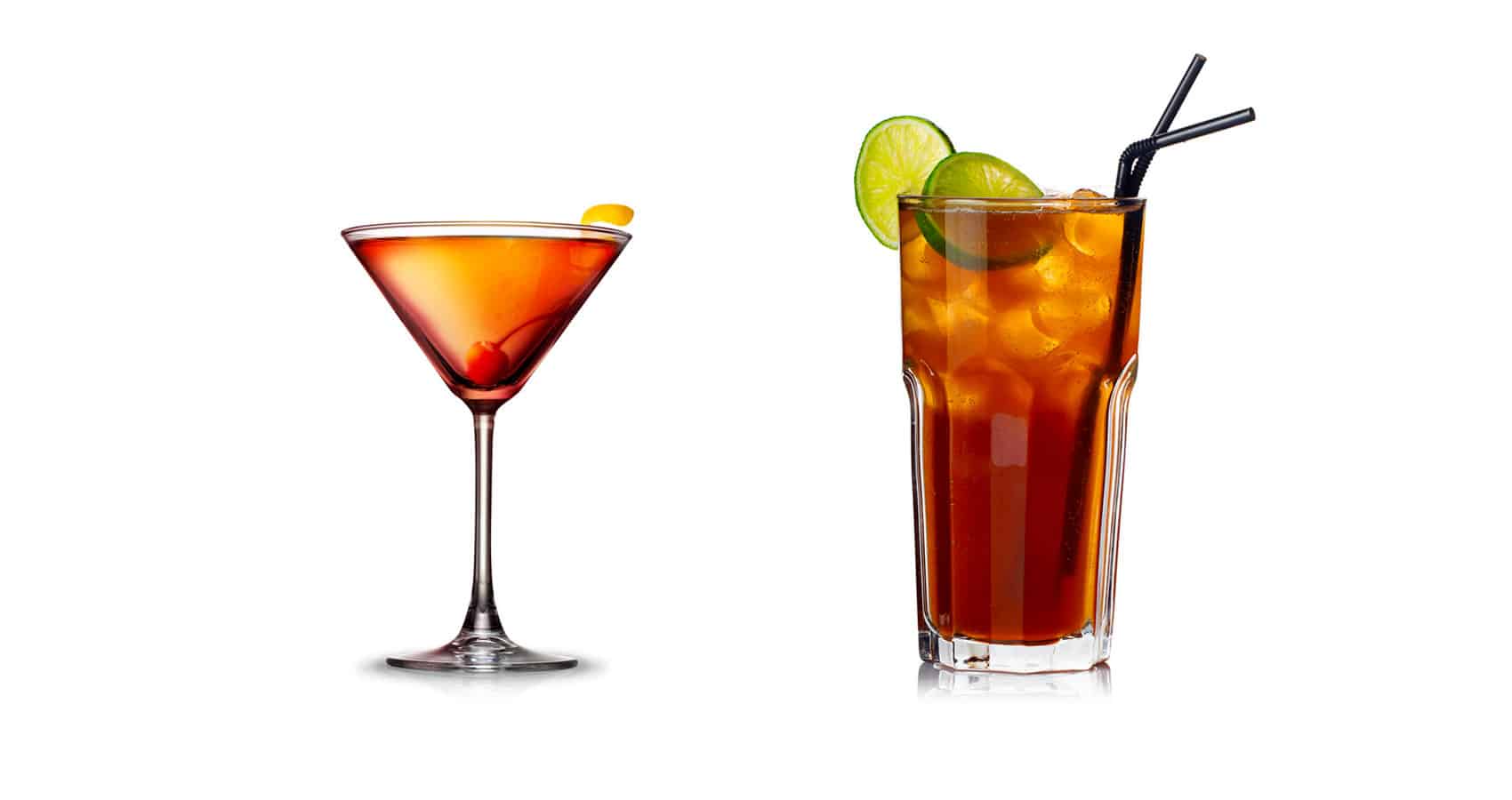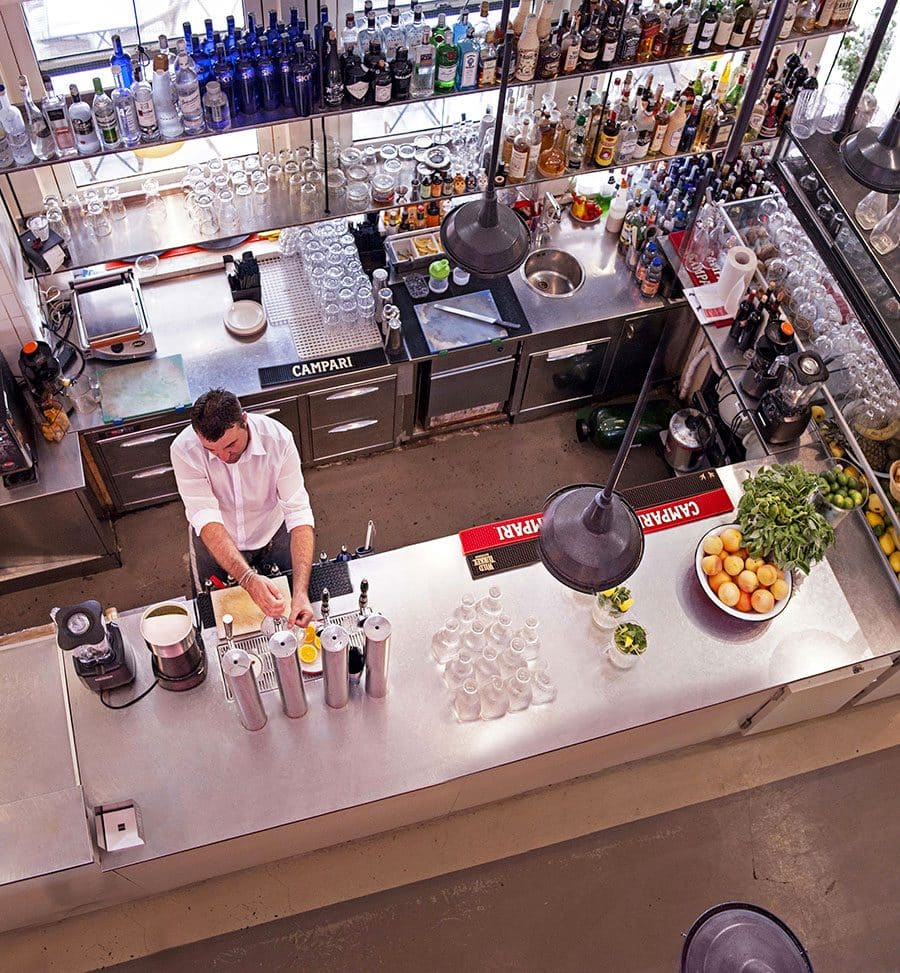Two now decidedly classic cocktails that undoubtedly owe part of their worldwide popularity to Hollywood cinema, which has spread their fame far beyond the very limited circle of cocktail connoisseurs and which still today constitutes an inextinguishable trait of the attraction that these taprooms represent for the younger public of consumers of shaken spirits.
Manhattan and Long Island Iced Tea naturally evoke New York, which offers the names of its most representative 'neighborhoods' to name the two cocktails; yet if we wanted to look in detail we will notice that in these few initial lines we have already exhausted some of the main similarities that could unite them, whereas instead it is the marked differences that separate them de facto, positioning them for quite different tastes and consumption contexts.
Starting from the historical tradition in which these cocktails were born. The date and place of birth of the Manhattan is quite certain, which saw the light in 1874 at the Manhattan Club in New York, a stone's throw from Central Park. The era in which the first Long Island Iced Tea saw its genesis is uncertain, however, disputed between the years of prohibition and the early 70s; and even the birthplace of the cocktail is unsure, where according to some it was invented by a certain Ransom Bishop in Tennessee in the 1920s and according to others, more credible according to historians and local sources, by a certain Robert Butt, bartender at the Oak Beach Inn on Long Island, who worked on the recipe only starting in 1972.
The consumption context in which they are preferred is partially different. While the Long Island Iced Tea it definitely is the most alcoholic among the cocktails served in the higball glass, and therefore constitutes an optimum 'false' long drink suitable for the late evening, The Manhattan served as aperitif, although it is also decidedly alcoholic and still quite versatile and sometimes also suitable for after-dinner drinks. But naturally it is its natural location, before the meal, which allows completely original reflections and ideas for the user who wants to grasp its most authentic essence. On the contrary, it is really difficult to imagine an aperitif enriched by Long Island Iced Tea, which certainly knows how to mask its gradations in taste but which could under no circumstances open up the evening to encourage further and subsequent tastings.
Both cocktails are fine mixed, not shaken.
But there is an analogy that is perhaps stronger than the others, the one that ultimately provided the inspiration for the genesis of this article itself.
Both cocktails have a truly pleasant and 'brilliant' taste, as long as they are made to perfection.
Long Island Iced Tea it is a cocktail that hosts heavy spirits such as gin, tequila, vodka and rum; yet, if well packaged, It tastes like iced tea and it goes down pleasantly in the throat, without caring at all about the alcohol content inherited from its rough parents.
At the same time, the Manhattan is certainly not the typical Vermouth-based aperitif drink, usually light in taste and alcohol content. Instead, it is the most popular whiskey-based cocktail, and has a recipe on paper that is perhaps one of the most essential among those available in a cocktail bar that is respected.
Nevertheless serving a well-made Manhattan is truly an art, believe me.
Let's put aside the angostura drops, which could confuse the less attentive and newcomers.
The Manhattan is two parts whiskey and one part Vermouth.
To get a Manhattan wrong, you simply need to get the whiskey wrong.
The original rule requires the use of rye whisky, which is whiskey distilled from rye. But forget about finding such a whiskey so easily in European cocktail bars.
So, instead of switching to bourbon as many do, try using the Canadian whisky for your Manhattan.
You will discover a different cocktail than the one you have always drunk; which will be much more similar to the original compared to the attempts often made with bourbon, and which will be able to immediately take on the charm it now has back from the 'dear old New York'. A cocktail that will enchant you with its enveloping and sensual flavor, in short, and that you will hardly be able to forget.






